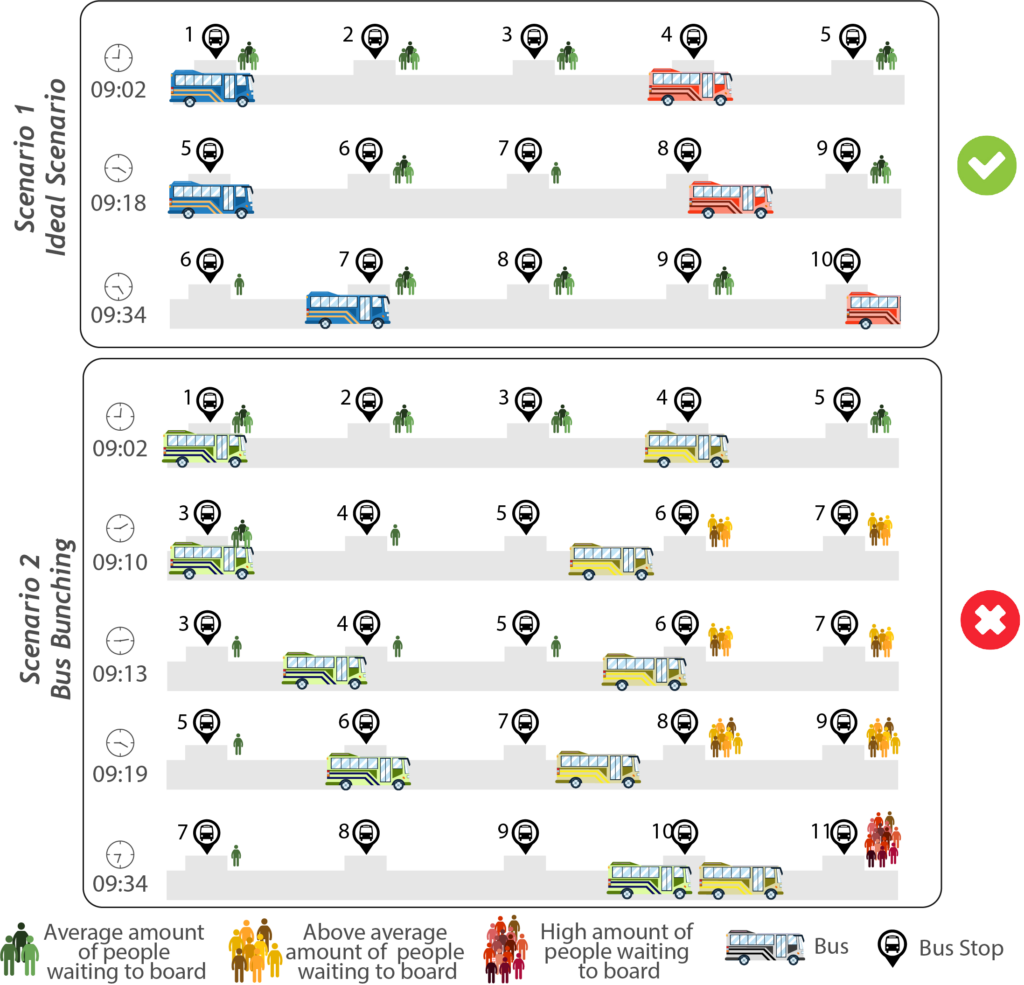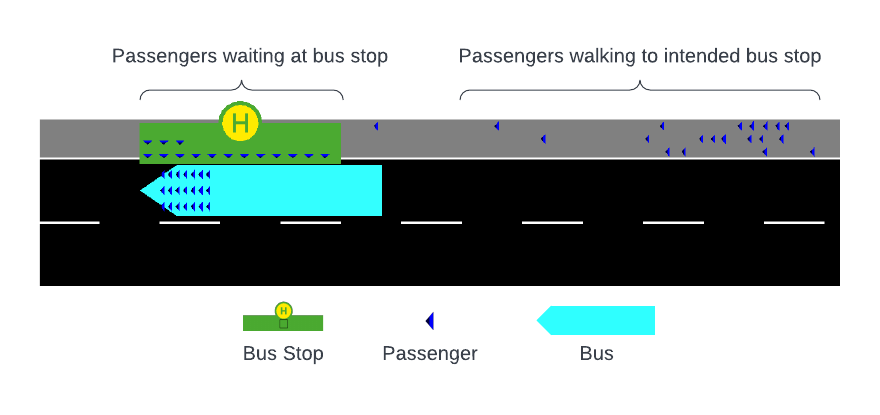The effectiveness and reliability of a public transportation system is key to have a more sustainable mode of frequently used urban transportation for passengers. In densely populated areas, transportation systems often become less reliable as buses drift away from their scheduled arrival and departure times due to traffic congestion, accidents and variability in passenger demand. Increased demand delays a bus from departing a bus stop on time, while the following bus eventually catches up; causing the phenomenon known in literature as Bus Bunching. This has led bus operators to gear towards a bus schedule that works with intervals between buses rather than fixed timetables.
This research investigates the use of Reinforcement Learning to dispatch buses dynamically by taking into account passenger demand. Two methods are implemented and compared, the first being a rule-based strategy using an if-then approach, and the second is by using a deep Q-learning algorithm. The decisions the system can make are bus holding, stop skipping and enforcing boarding limits. Both strategies are tested by simulating a ring-road with 24 bus stops and 14 buses and varied passenger demand throughout the bus route using the SUMO traffic simulator. The simulator provides a very good overview of the environment and by using TraCI – SUMO’s Python API, observations and actions can be made programmatically to control the behaviour of the buses.
Using a simulator allows for different environments and scenarios to be created over multiple episodes allowing for trial and error until the agent learns a good policy. The two approaches along with a No-Control approach, used as a benchmark, are evaluated using a headway variance performance metric where a high variance indicates a likelihood that bus bunching has occurred.


References
[1] Luís Moreira-Matias, Carlos Ferreira, João Gama, João Mendes-Moreira, and Jorge Freire de Sousa. Bus Bunching Detection by Mining Sequences. In Proceedings of the 12th Industrial Conference on Advances in Data Mining: Applications and Theoretical Aspects, volume 12, pages 77–91, Berlin, Germany, 2012. Springer-Verlag
Student: Diana Darmanin
Course: B.Sc. IT (Hons.) Artificial Intelligence
Supervisor: Dr Josef Bajada
